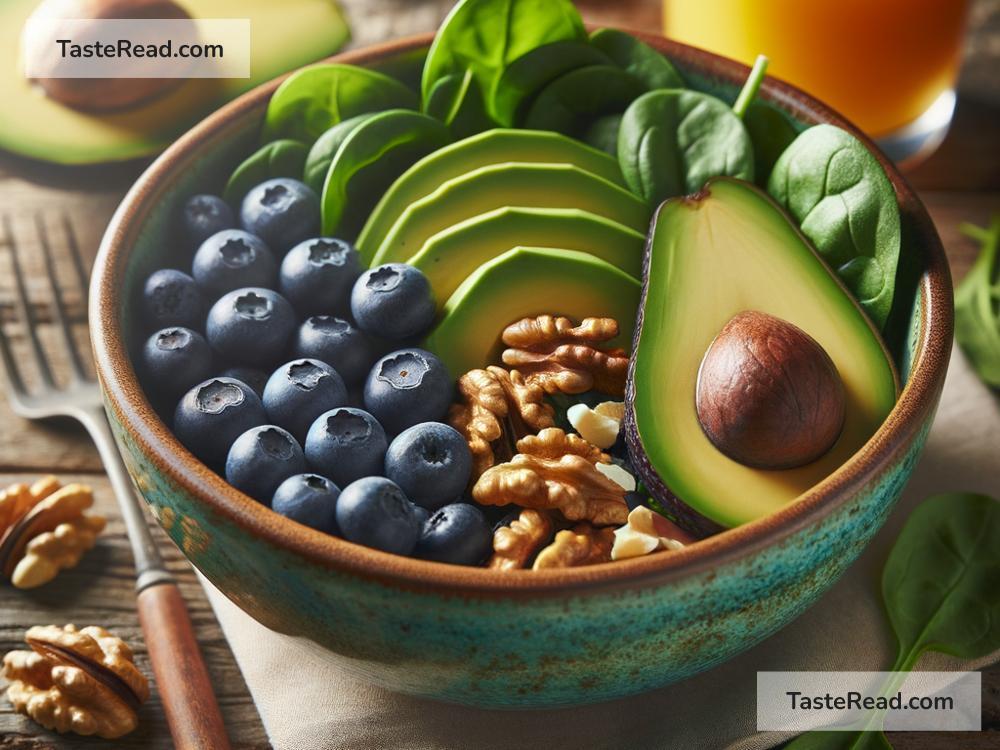Foods That Reduce Risk of Pulmonary Fibrosis: Nourishing Your Lungs Naturally
Pulmonary fibrosis is a lung condition that can make breathing difficult and reduce your quality of life. It happens when lung tissue becomes scarred and stiff, making it harder for oxygen to enter your bloodstream. There’s no cure for pulmonary fibrosis, but making healthier choices, including eating the right foods, can help reduce the risk of developing the condition and may improve lung health overall.
In this article, we’ll explore simple everyday foods that support lung health and may reduce inflammation and oxidative damage, which are believed to play a role in pulmonary fibrosis. Best of all, these foods are common, delicious, and easy to add to your diet!
1. Fruits Rich in Antioxidants
Antioxidants are compounds that protect the body from damage caused by free radicals—unstable molecules that can lead to inflammation and tissue damage over time. Since oxidative damage contributes to pulmonary fibrosis, eating antioxidant-rich fruits can be beneficial.
Top Picks:
– Berries: Blueberries, strawberries, and blackberries are packed with antioxidants like vitamin C and anthocyanins. These can help reduce inflammation in the lungs.
– Citrus Fruits: Oranges, lemons, and grapefruits are high in vitamin C, which supports your immune system and may help prevent lung tissue damage.
– Apples: The flavonoids in apples have been linked to better lung function, making them a tasty and healthy choice.
2. Leafy Greens
Leafy greens like spinach, kale, and Swiss chard do wonders for lung health. They’re loaded with vitamins and minerals, such as magnesium, vitamin E, and folate, which boost overall body function and reduce inflammation.
Why They Help: Magnesium, found in abundance in greens, plays a key role in relaxing the airways and improving breathing. Vitamin E is another powerful antioxidant that protects lung tissue from damage and keeps it strong.
Serving Tip: Toss leafy greens into salads, smoothies, or stir-fries for a quick and easy way to get lung-friendly nutrients daily.
3. Fatty Fish
Fatty fish such as salmon, mackerel, and sardines are excellent sources of omega-3 fatty acids. These “good fats” help combat inflammation and support lung health.
Omega-3 Benefits: Chronic inflammation is a major problem for people at risk of pulmonary fibrosis. Omega-3s help reduce this inflammation, improving lung function and possibly slowing the progression of lung diseases.
Serving Tip: Aim to include fatty fish in your meals one to two times a week. If you don’t eat fish, you can try plant-based alternatives such as walnuts, chia seeds, and flaxseeds.
4. Nuts and Seeds
Walnuts, almonds, sunflower seeds, and flaxseeds are high in healthy fats, vitamin E, and other essential nutrients that fight inflammation and promote lung health.
Top Benefits: Nuts and seeds help reduce oxidative stress in the lungs and provide important nutrients such as selenium and zinc that protect lung tissue from damage.
Serving Tip: Grab a handful of nuts as your go-to snack or sprinkle seeds over your cereals, yogurt, or salads for an added nutrient boost.
5. Garlic and Onions
Garlic and onions might seem like basic ingredients, but they have powerful health benefits for your lungs. They contain sulfur compounds and antioxidants that can help reduce inflammation and improve breathing.
Why They Help: Garlic and onions help thin out mucus in the respiratory system, making it easier for the lungs to function properly. Additionally, these foods can enhance overall immunity and reduce the risk of respiratory infections.
Serving Tip: Use garlic and onions as a base in soups, stir-fries, and sauces for both flavor and health benefits.
6. Turmeric
Turmeric is a golden spice widely recognized for its anti-inflammatory properties. It contains curcumin, a compound that has been shown to reduce inflammation and may help protect the lungs.
Why Turmeric Matters: Since inflammation plays a big role in pulmonary fibrosis, consuming turmeric regularly can help keep your lungs healthier over time.
Serving Tip: Add turmeric to your soups, curries, or smoothies. You can also make turmeric tea by mixing it with warm water, honey, and a pinch of black pepper (which helps your body absorb curcumin better).
7. Green Tea
Green tea is rich in antioxidants called polyphenols, which have anti-inflammatory properties and may help improve lung function. Drinking green tea regularly can reduce oxidative damage and support your lungs.
Why It’s Useful: The polyphenols in green tea may slow down the progression of lung diseases and support smoother breathing.
Serving Tip: Enjoy one to two cups of green tea daily for a soothing, lung-boosting treat.
8. Whole Grains
Whole grains like oats, quinoa, and brown rice are great for lung health. They are packed with fiber and B vitamins, which help your lungs work at their best.
Why They Help: Fiber in whole grains may reduce inflammation in the body, while B vitamins improve energy levels and reduce oxidative stress.
Serving Tip: Replace white bread and rice with whole-grain versions for added health benefits.
Conclusion: Nourish Your Lungs with Healthy Foods
While no single food can prevent or cure pulmonary fibrosis, eating a balanced diet full of nutrient-rich foods can help support your lung health and reduce the risk of inflammation and oxidative damage. Fruits, leafy greens, fatty fish, nuts, garlic, turmeric, green tea, and whole grains are all simple but powerful additions to your eating habits.
Pair these foods with good lifestyle choices—like avoiding smoking, staying active, and maintaining a healthy weight—for even greater protection against lung problems. Remember, every bite counts toward building a healthier, stronger body, including your lungs!
Disclaimer: If you have specific dietary restrictions or health conditions, always consult with a healthcare provider or registered dietitian before making changes to your diet. Lung health matters, and professional advice is key to creating the best plan for you.


